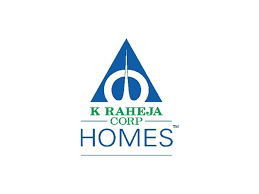

Guide to Commercial Properties – Perfect Investment
13th September 2024
Investing in commercial property is a proven way to build substantial wealth over time. Commercial real estate offers unique advantages, including higher rental yields, diverse investment opportunities, and long-term financial security. Whether you’re a seasoned investor or new to the world of real estate, understanding the intricacies of investing in commercial property is essential for maximizing your returns. This guide will walk you through why investing in commercial property is a smart decision and how you can get started.
1. Why Invest in Commercial Property?
Investing in commercial property stands apart from residential real estate, primarily because of its ability to deliver higher returns and more stable cash flow.
- Higher ROI (Return on Investment):
One of the primary reasons investors choose commercial property is its ability to generate higher returns. Businesses usually sign long-term leases (5-10 years), providing a more reliable and steady income compared to residential tenants. - Diversification of Portfolio:
Investing in commercial property can diversify your portfolio, reducing risk. This diversification can protect you from the volatility of stock markets, making your overall investment strategy more robust. - Tax Benefits:
There are several tax deductions available for commercial property owners, including deductions for mortgage interest, property depreciation, and operational expenses. These benefits can significantly reduce your taxable income. - Property Value Appreciation:
Commercial properties, especially those located in high-demand areas, tend to appreciate in value over time. As the area develops, so does the potential for your property to increase in worth, offering an opportunity for substantial capital gains.
2. Types of Commercial Properties
Before jumping into the world of commercial real estate, it’s important to understand the different types available and how they align with your investing goals.
- Office Buildings:
Office spaces are often leased to companies, providing long-term contracts that result in stable cash flow. However, shifts in work trends, such as the rise of remote work, could affect demand. - Retail Spaces:
Retail properties include shopping malls, strip centers, and stand-alone stores. These spaces are leased to retail businesses, but the success of retail properties often depends on the economic health of the businesses occupying them. - Industrial Properties:
Industrial real estate includes warehouses, distribution centers, and manufacturing units. With the rise of e-commerce, investing in industrial properties has become increasingly profitable due to the growing demand for logistics and storage facilities. - Multi-Family Housing:
While technically a form of residential real estate, multi-family housing (apartment buildings with more than four units) is often classified as commercial property. These investments generate stable rental income, especially in urban areas with high demand for housing.
3. Key Factors to Consider Before Investing in Commercial Property
Investing in commercial property requires careful planning and thorough research. Here are the most important factors to consider:
- Location is Key:
The location of your commercial property is critical to its success. Properties located in thriving business districts, near public transportation, or in high-traffic areas tend to perform better, attract higher rents, and appreciate in value faster. - Market Trends:
Stay informed about current trends in the commercial real estate market. For example, a growing demand for e-commerce may increase the need for industrial properties, while a shift toward remote work may decrease the demand for office spaces. - Tenant Quality:
The financial success of your investment largely depends on the quality of your tenants. Long-term, stable tenants provide reliable rental income. Look for established businesses with strong financials when selecting tenants. - Maintenance and Operational Costs:
Commercial properties typically require ongoing maintenance and property management. Before investing, factor in costs like repairs, utilities, property management fees, and potential vacancies when calculating your expected returns. - Commercial Property Financing:
Securing a loan for a commercial property is different from residential mortgages. Commercial property loans usually require larger down payments, higher interest rates, and more detailed financial evaluations. Be sure to understand your financing options and prepare for the larger upfront costs.
4. Steps to Start Investing in Commercial Property
If you’re ready to start investing in commercial property, follow these steps to ensure a successful and smooth investment process:
- Research the Market:
Start by studying the commercial real estate market in your target location. Look for emerging trends, growth areas, and high-demand property types to identify the best opportunities. - Develop a Strategy:
Decide whether you want to focus on generating rental income, capital appreciation, or both. Creating a clear strategy will help guide your decisions when selecting properties. - Secure Financing:
Explore commercial property loans from banks or private lenders. Since commercial financing typically requires larger down payments, make sure you have the financial resources ready. - Work with a Commercial Real Estate Agent:
A professional real estate agent specializing in commercial properties can provide valuable market insights, negotiate favorable deals, and help you navigate the legal complexities of purchasing a commercial property. - Perform Due Diligence:
Before finalizing the purchase, conduct a thorough inspection of the property, review its financial history, and ensure there are no legal issues, such as zoning regulations, that might affect its future use. - Property Management:
Once you own the property, you’ll need to manage it, including dealing with tenants, maintenance, and rent collection. If you prefer a more hands-off approach, consider hiring a property management company to oversee day-to-day operations.
5. Risks Involved in Investing in Commercial Property
Like any investment, investing in commercial property comes with its own set of risks. It’s essential to be aware of these risks before making a decision:
- Economic Downturns:
Economic slowdowns can reduce demand for commercial spaces, leading to vacancies and lower rental income, especially in sectors like retail or office spaces. - Vacancy Rates:
Unlike residential properties, commercial properties may have higher vacancy rates, especially in challenging economic conditions. It can take time to find the right tenant, which affects your cash flow. - Management Challenges:
Commercial properties often require active management, from handling tenants to maintaining the building. Managing a commercial property is more complex than managing a residential one, so it may be worth considering professional property management.
Conclusion
Investing in commercial property can be a rewarding way to grow your wealth and diversify your portfolio. With the potential for higher returns, long-term tenant agreements, and tax advantages, commercial properties are a solid investment choice. However, it’s essential to approach this venture with careful planning and a clear strategy. By understanding the market, selecting the right property, and managing it effectively, you can enjoy the financial rewards of owning commercial real estate.
Register Your Interest
Recent posts


Understanding Leasehold Properties: What You Need to Know

An Ultimate Guide to Fractional Ownership Real Estate in India.

What is Khasra Number? A Complete Guide

Effective tax planning strategies for buying property in India
